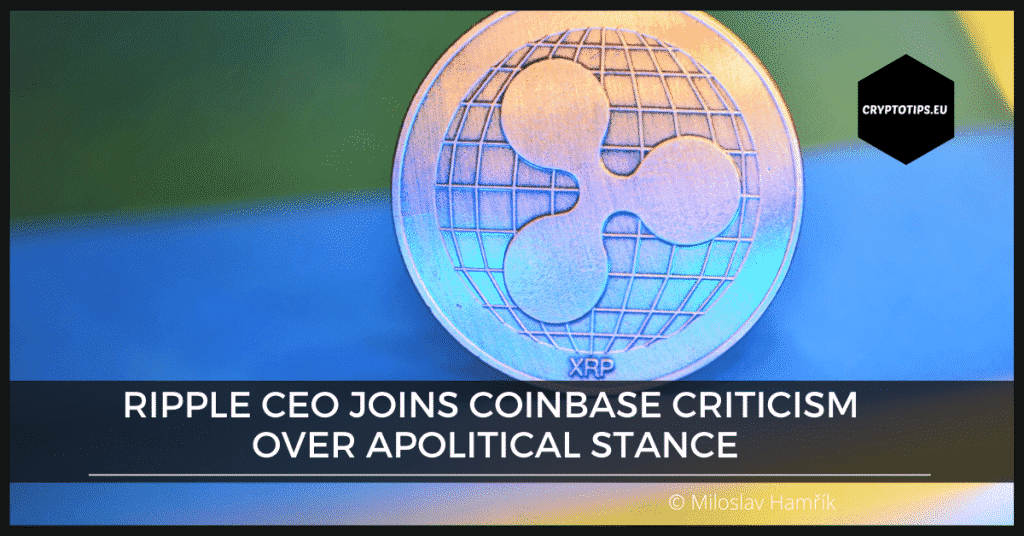Ripple CEO Joins Coinbase Criticism Over Apolitical Stance
Last Updated on 27 October 2020 by CryptoTips.eu
At the beginning of this month, Twitter CEO Jack Dorsey stirred up controversy when he criticized Coinbase CEO Brian Armstrong’s blog post about the company’s apolitical stance. Coinbase, still the largest crypto platform in the US, even extended their apolitical stance and said they had offered a generous “severance package” to anyone of their employees that didn’t agree with the company’s position.
Given that Jack Dorsey is also the CEO of Square, which recently invested some $50 million into Bitcoin directly, you would think that Coinbase would then change their stance.
Brad Garlinghouse, CEO of Ripple, on Coinbase’s “apolitical culture” https://t.co/D6PYokGxQe
— DJ Peter Vas (@PeterVas6) October 26, 2020
Apparently, Brian Armstrong refused to budge on this and some 5% of his personnel left. In a super competitive world, such as the region of Silicon Valley and the world of FinTech indeed is, any staff working for one crypto behemoth is quickly picked up by another, so none of these gents would have probably been out of a job for too long.
Central Bank Digital Currencies
You would think that’s it. But, by now, another famous crypto CEO has also waded in.
Brad Garlinghouse, CEO of Ripple (XRP) was invited for a podcast by financial channel CNBC to discuss CBDC (Central Bank Digital Currencies) after the Federal Reserve had already mentioned that they were considering issuing a US crypto coin soon.
#Business #XRPRippleNews #BradGarlinghouse #BrianArmstrong Brad Garlinghouse Disagrees With Coinbase’s Zero Politics Stance https://t.co/tqedI3Ek3d pic.twitter.com/vMTcLMpk2H
— Bittrail (@___CryptoNews) October 26, 2020
Asked about Coinbase’s apolitical stance, Garlinghouse (who even paid his own staff time off to vote and volunteer in the upcoming presidential election), said he disagreed.
As to Armstrong’s choice not to wade into the US election, the Ripple CEO was quite clear, stating:
We think about our mission as enabling an internet of value but we seek positive outcomes for society. I think tech companies have an opportunity, but actually an obligation, to lean into being part of the solution.
The sad reality is, and I say this as a long-time veteran of Silicon Valley, some of these (societal) problems are, at a minimum, exacerbated by the tech platforms themselves.
We’re sure that’s not the last we’ve heard about this story.
